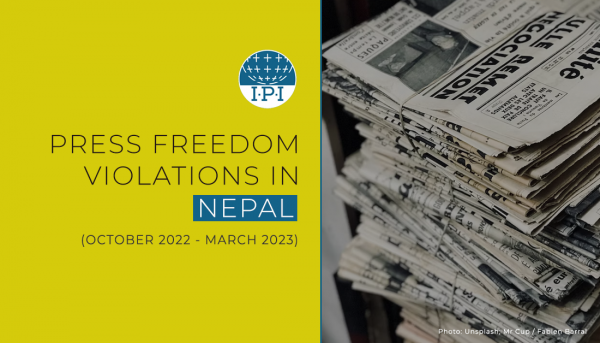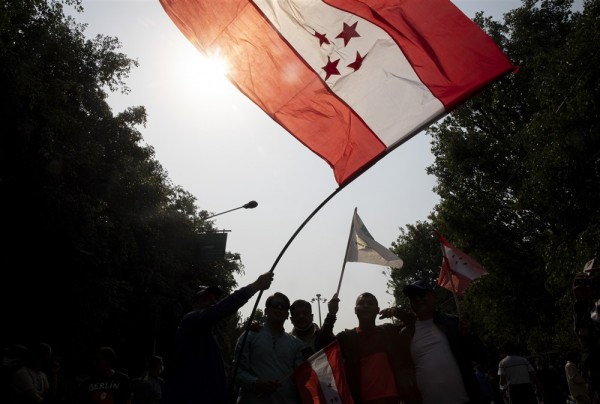The International Press Institute (IPI), the global network of editors, media executives and leading journalists in over 120 countries, condemns the recent wave of attacks against journalists in Nepal.
According to information provided by IPI’s National Committee in Nepal, in the night of 29 March, a group of unidentified people broke into the office of the renowned weekly Lalit Sandesh, based in Lalitpur district, in central Nepal, and vandalized its property, including furniture and windows. The motive of the attack remains unknown.
In a separate incident, on 29 March, Maoist activists in Western Nepal threatened to close Ramaroshan FM Radio, the only community radio station in the Achham district. Reports indicated that the threat first came in a speech held by local Maoist leader Jhankar Bahadur Rawal in connection with upcoming elections. A group of about one hundred Young Communist League (YCL) activists later swarmed the radio’s transmission centre at Thulasain. Their effort was foiled when a group of policemen intervened.
On 30 March, a group of reporters was reportedly beaten by activists of the Madhesi Peoples’ Rights Forum (MPRF) in Inaruwa, in the eastern Sunsari district. MPRF has been vocal in the Terai district, demanding autonomy and fully proportional representation of the Madhesi people in the Constituent Assembly. The reporters were travelling to the Terai district to report on the situation in the run-up to the imminent Constituent Assembly elections. The group of journalists, led by the Reporter’s Club Nepal, included journalists Rishi Dhamala, Dharmaraj Adhikari, Kanaiya Gupta, Dipendra Raj Paudel and Kumar Shrestha, the driver, who were all manhandled. The MPFR activists also smashed the windows of the reporters’ vehicle.
While physical violence and threats represent the greatest hindrance to journalists, the case of Kishor Shrestha, editor of the weekly Drishti, shows that judicial harassment of journalists is also a potential problem in the country. Shrestha currently faces contempt of court charges for writing articles claiming that a recent court verdict regarding former Rastra Bank governor Bijay Nath Bhattarai was influenced by financial kickbacks. On 30 March, Nepal’s Supreme Court summoned the editor, asking him to provide clarification in writing as to why he should not be indicted on the contempt charge. He was asked to produce a reply within five days of the receipt of the order.
“Such attacks against the media threaten to compromise the fairness of the country’s upcoming Constituent elections,” said IPI Director David Dadge. “Particularly during such a vital political transition, the media must be free to report on issues of public interest. Interference of any kind by any political group is unacceptable. All parties in Nepal need to reflect on the fact that disrespect for press freedom and the journalistic profession will damage the restoration of democracy in Nepal, with the whole Nepalese population suffering as a result,” Dadge added.
***The IPI National Committee in Nepal has set up a Press Freedom Monitoring Center. Press freedom violations in Nepal can be reported to:
Nepal National Committee, Kathmandu, Nepal P.O. Box: 24292, Tel. No.: +977-141-02022, Cell No: +9779841134816 (Ref : Khil Dhoj Thapa), E-mail: [email protected], http://www.ipinepal.org/


